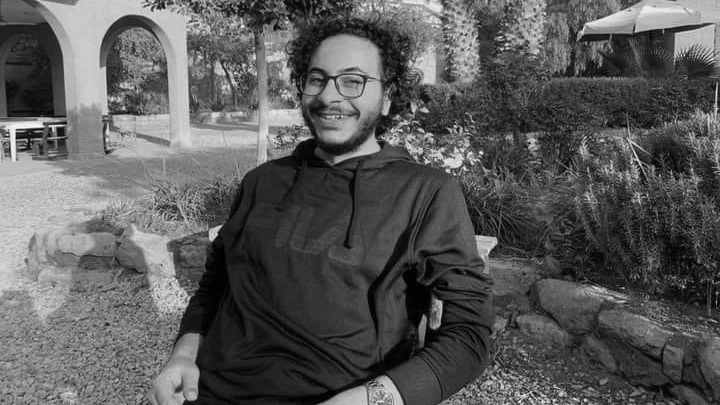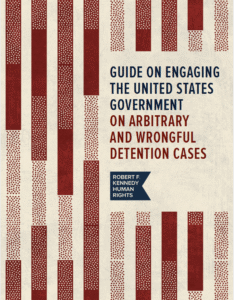
The Association for Freedom of Thought and Expression and Robert F. Kennedy Human Rights welcome the favorable opinion by the United Nations Working Group on Arbitrary Detention finding the Egyptian government arbitrarily detained our client Ahmed Samir Santawy in violation of international human rights law. The Working Group held that the government arbitrarily deprived Santawy of his liberty without a legal basis consistent with international human rights standards, violated his rights to a fair trial by denying them access to their lawyers and were discriminatory against Santawy becasue of political opinions and status as an academic.
Santawy is a 30-year-old Egyptian graduate student, who at the time of his detention, was completing his masters degree in Sociology and Anthropology at Central European University in Vienna, Austria. Santawy’s arbitrary detention was the culmination of the government’s targeted harassment including through interrogation at the airport whenever he returned to Egypt from Vienna; the raid of his family home without a warrant and confiscation of his property; and at least two further interrogations at the office of the National Security Agency. Santawy was arrested on February 1, 2021 and held incommunicado for at least five days during which he was blindfolded and assaulted by security agents. Neither Santawy nor his lawyers were officially informed of the charges against him until his trial on June 1, 2021, four months after he was arrested.
“Ahmed Samir has been detained for over a year merely because of his academic work and research on women’s reproductive rights in Egypt. He is an excellent academic researcher and we want him back with us in Europe,” said Souheila Yildiz, Santawy’s partner.
Santawy was included in two cases, the latter of which was referred to trial before the Emergency State Security Court—a special court established and operated under Egypt’s emergency law, verdicts of which cannot be appealed and are only subject to the President’s review. Unsurprisingly, this court sentenced Santawy to imprisonment for four years on unfounded charges of spreading false news from abroad about the country’s internal affairs that harms national security and public order. Egyptian President Abdel Fattah El-Sisi has yet to either approve the court’s verdict or heed the calls to quash Santawy’s conviction.
“Santawy’s case is a part of the crackdown on Egyptian academics especially those who belong to the western academic institutions. The Egyptian government doesn’t respect the international values of academic freedom which empower all academics and researchers to exchange ideas, information and experience with their colleagues worldwide. Every researcher has the right to participate in international conferences and to travel or study abroad without political restrictions or security threats,” said Mohamed Abd El-Salam, executive director at Association for Freedom of Thought and Expression.
The Working Group requested that the Egyptian government immediately release Santawy, provide him with the appropriate compensation and reparations, ensure an independent and impartial investigation into his arbitrary arrest, and hold those responsible for the violation of his rights to be held accountable. In addition, the Working Group urged the government to take all necessary steps to bring his situation in conformity with international human rights law and referred Santawy’s case to other special procedures of the United Nations including the Special Rapporteur on Torture and Other Cruel and Inhuman or Degrading Treatment or Punishment for further consideration and action.
“This Working Group’s decision is a welcomed development in Santawy’s case and comes at a time when Egypt claims to be committed to human rights reforms.” said Ikechukwu Uzoma, staff attorney at Robert F. Kennedy Human Rights. “Releasing Santawy immediately would be a litmus test for President El Sisi’s recently adopted human rights strategy. The world is watching,” he added.
Read the full decision by the UNWGAD here.




